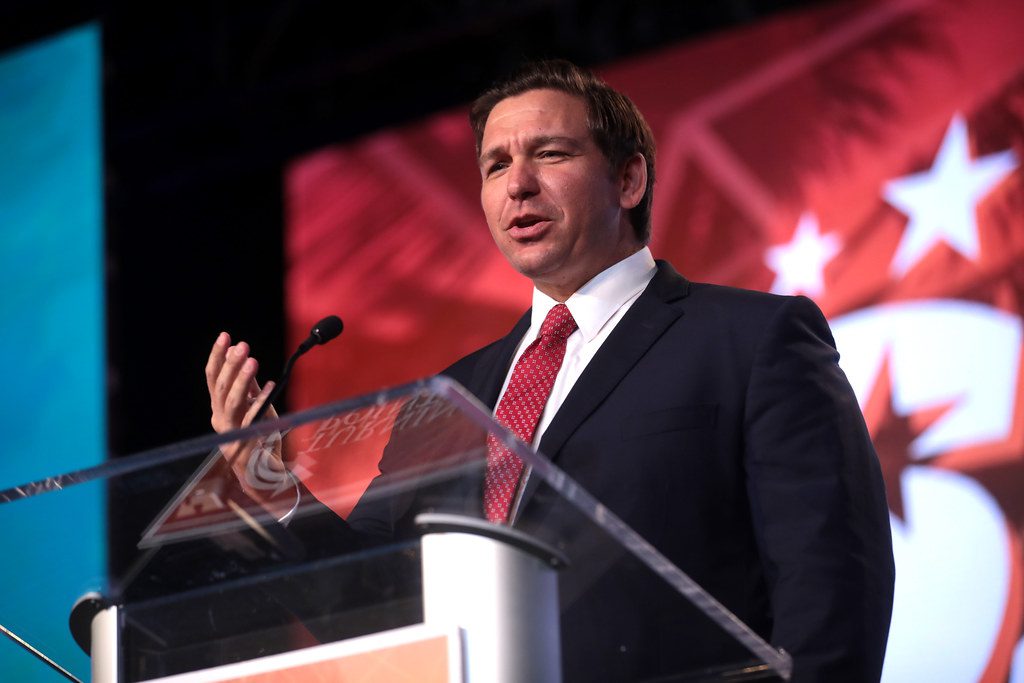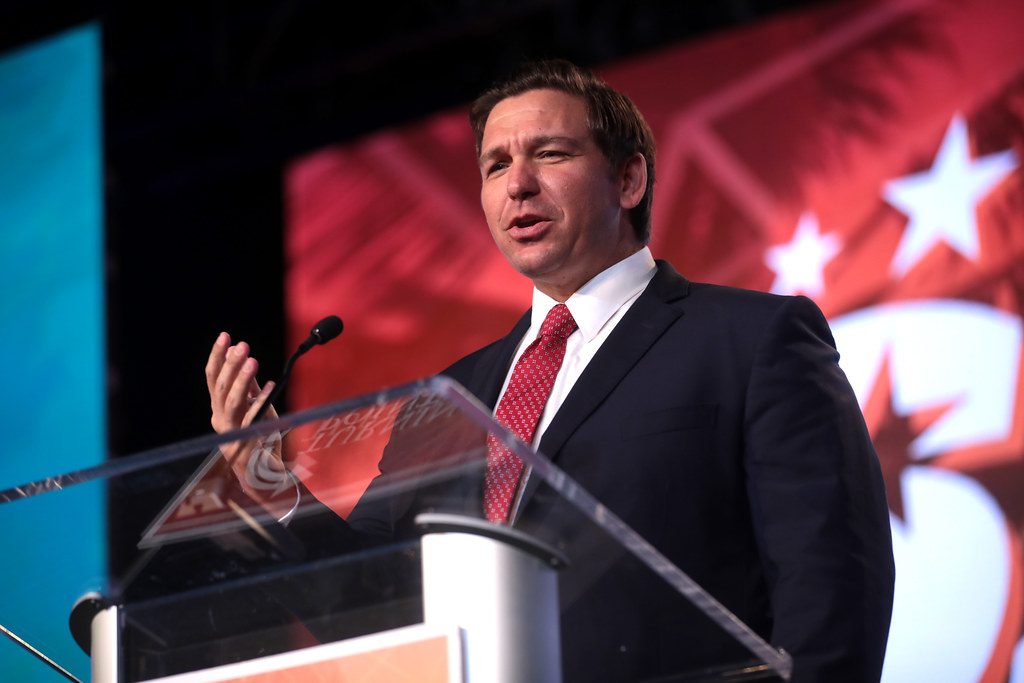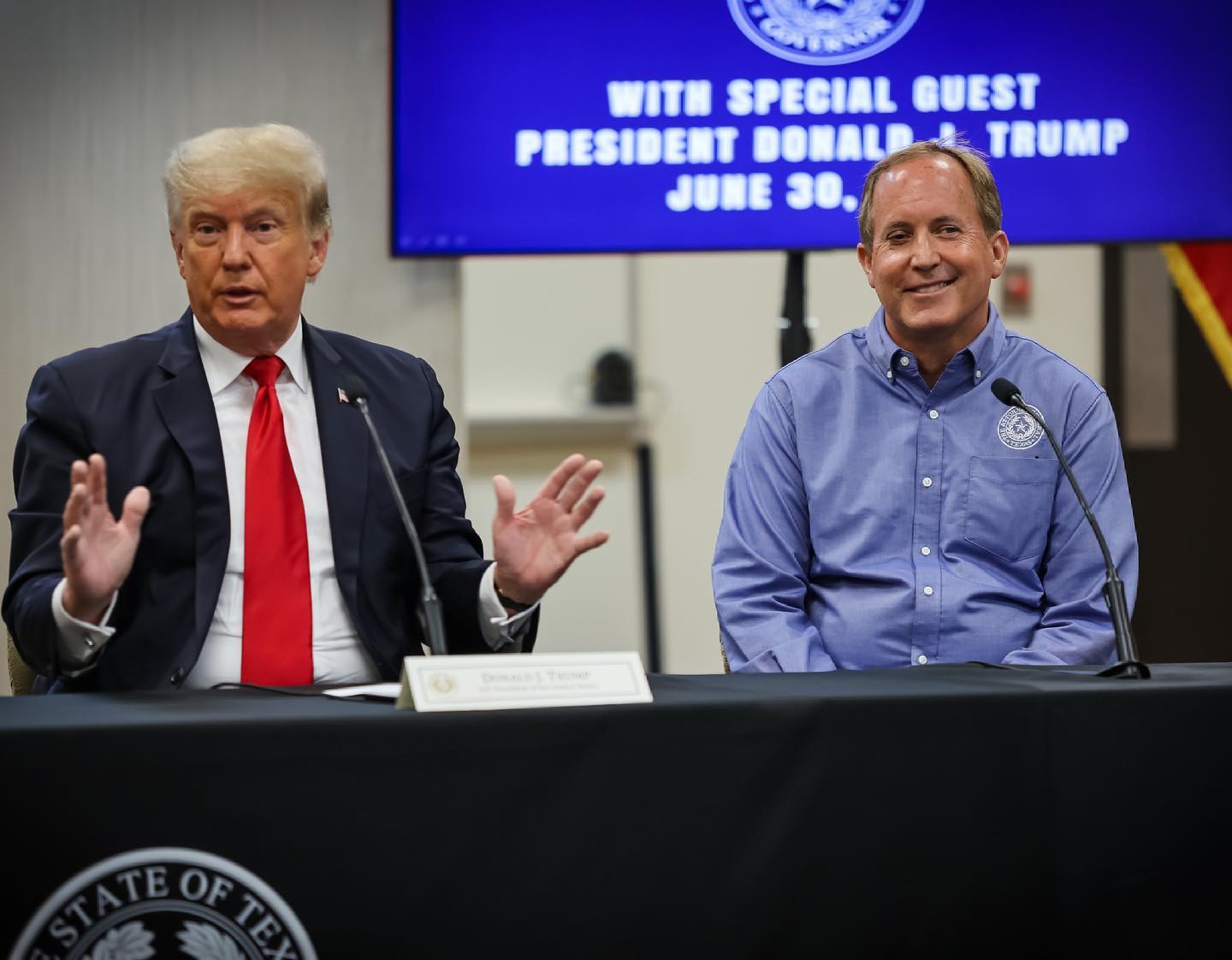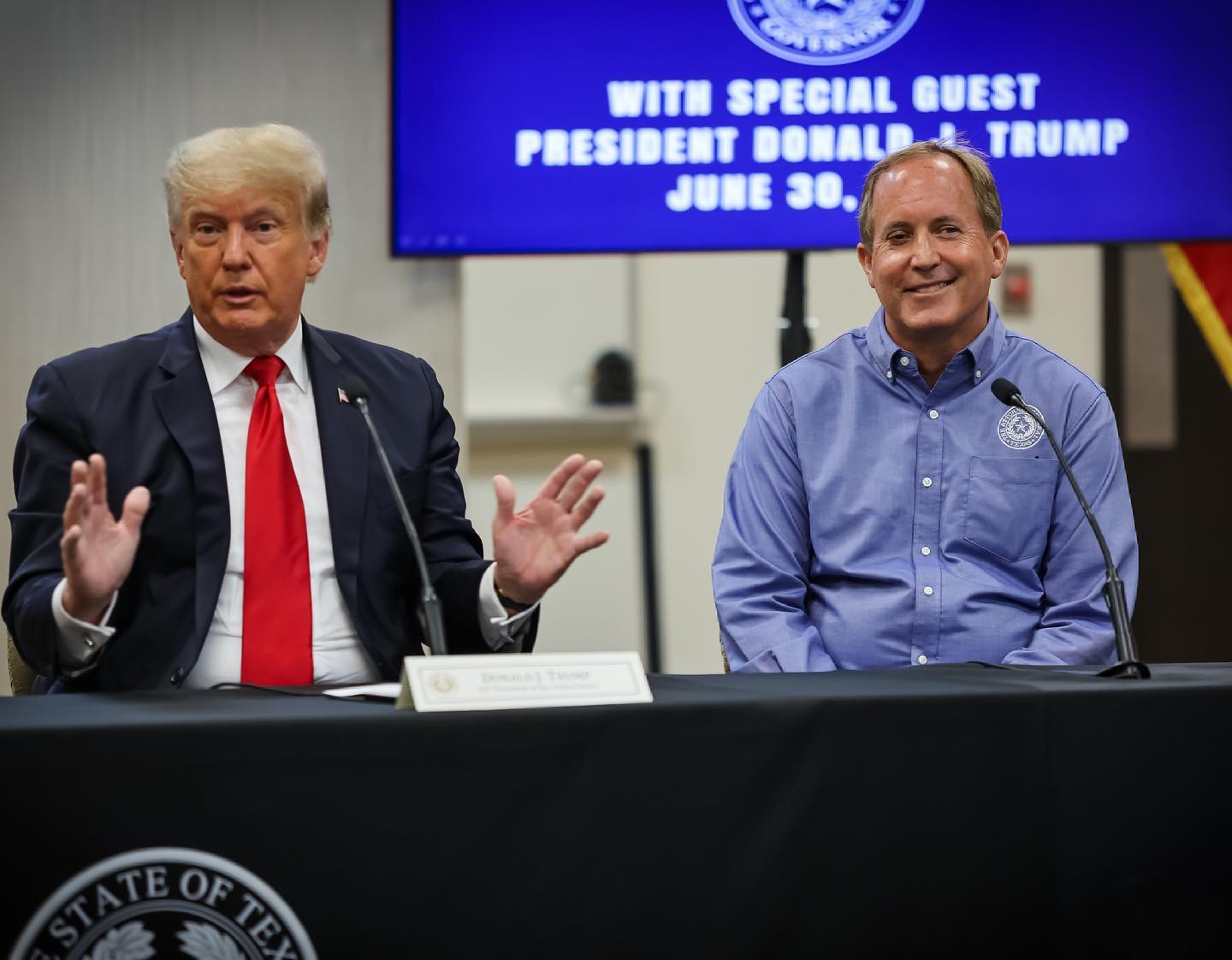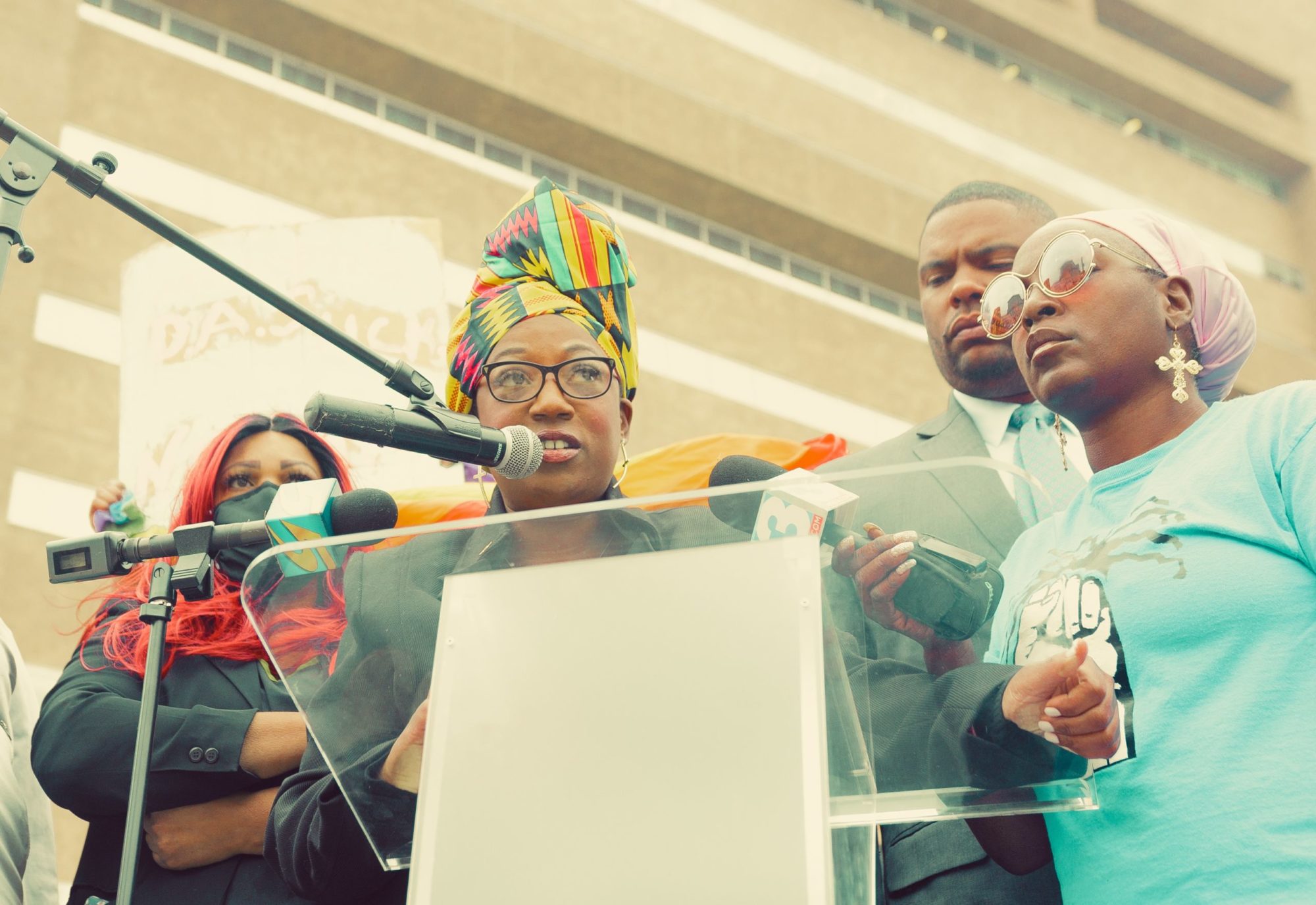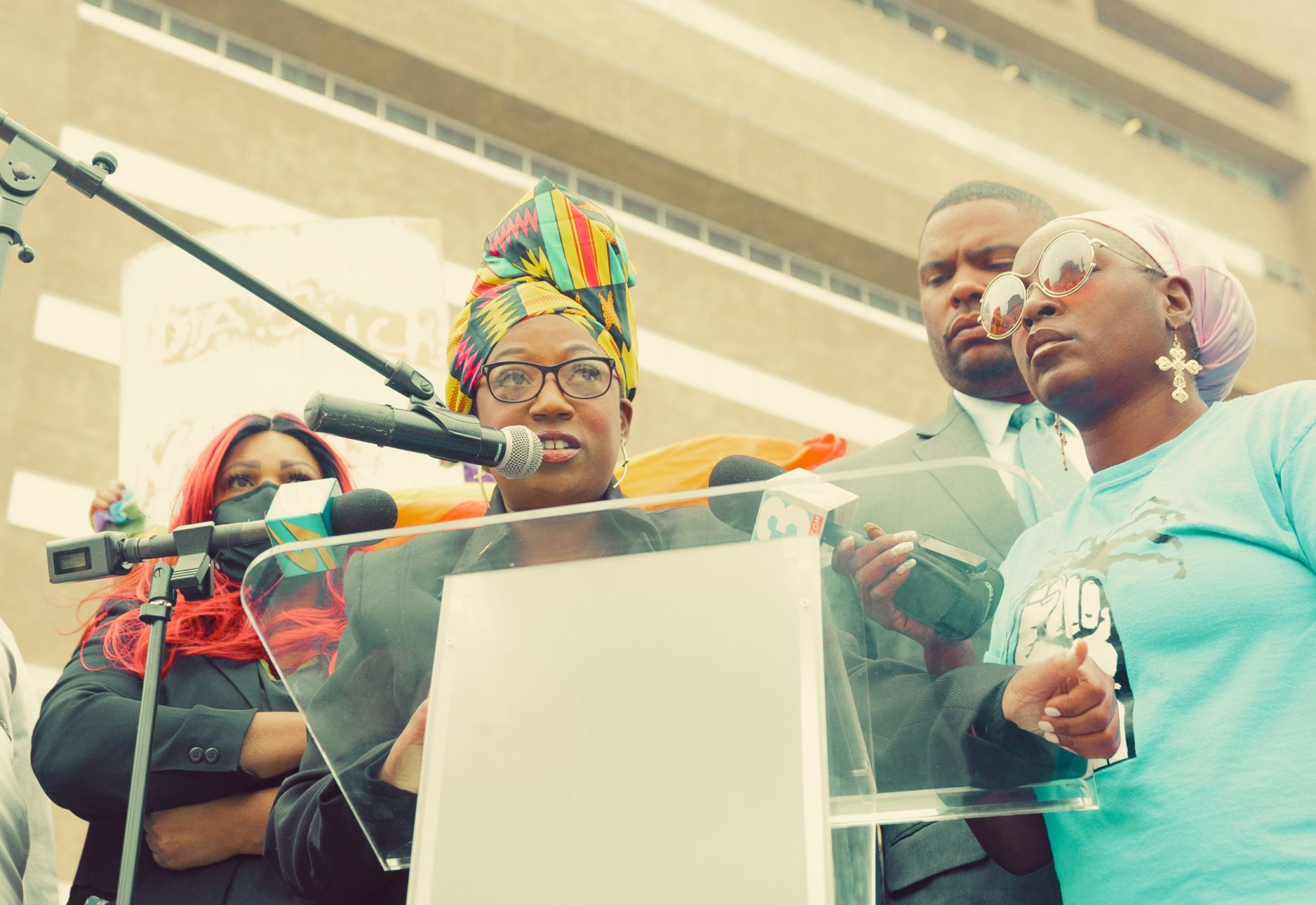A Police Stop Is Enough to Make Someone Less Likely to Vote
New research shows how the communities that are most heavily policed are pushed away from politics and from having a say in changing policy.
Jonathan Ben-Menachem | February 1, 2023
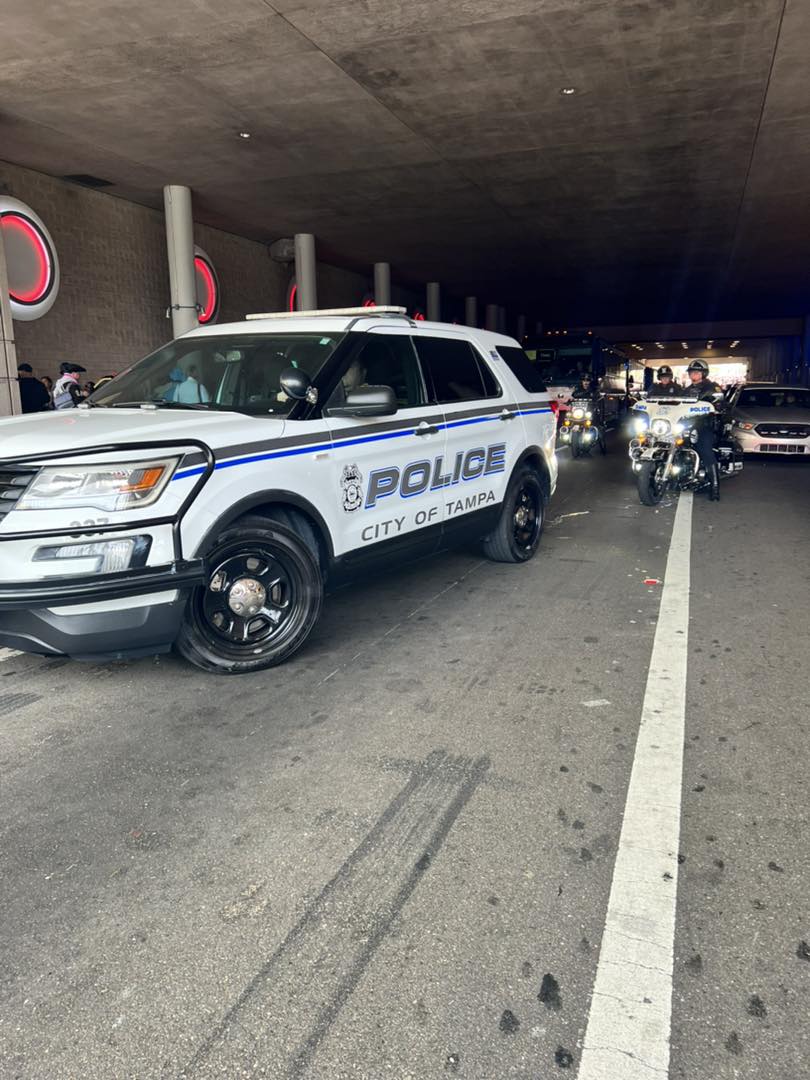
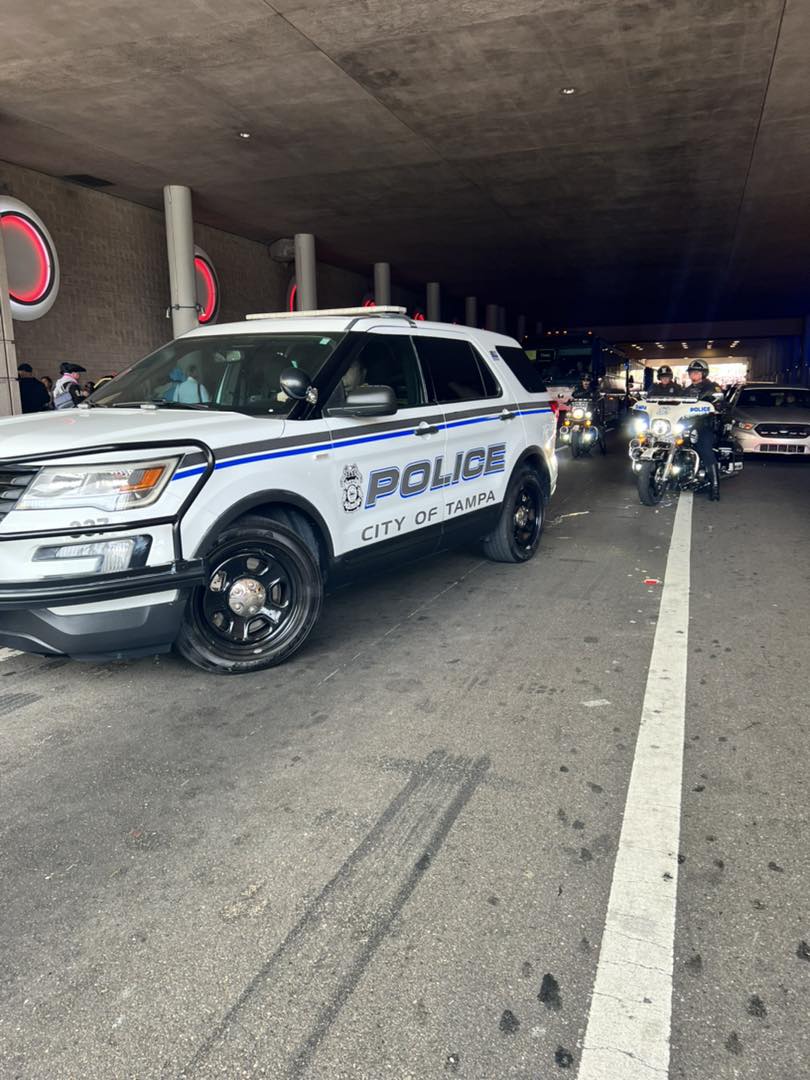
Florida Governor Ron DeSantis grabbed headlines throughout 2022 for practices that weakened democracy—from creating a police force to monitor voting to coordinating the arrests of people who allegedly voted illegally after the state told them they were eligible. In August, he suspended Tampa’s elected prosecutor, Democrat Andrew Warren, over his stated refusal to prosecute cases relating to abortion and trans rights, overriding voters’ decision.
But a host of more routine decisions made by Florida officials may be undermining the health of the state’s elections as well, even when they don’t seem directly related to voting rights.
To replace Warren as state attorney of Hillsborough County (home to Tampa), DeSantis appointed Susan Lopez, a member of the conservative Federalist Society. One of Lopez’s first decisions was to rescind a policy implemented by Warren to not prosecute bicyclists and pedestrians for certain traffic charges. A 2015 Tampa Bay Times report exposed the Tampa police department’s relentless ticketing of Black cyclists for things like having inadequate lighting, or riding on handlebars, a dynamic local organizers have labeled “bicycling while Black.” The report catalyzed a Justice Department investigation which ultimately confirmed the disproportionate enforcement.
New research shows how such low-level interactions with the police can undercut our democracy by reducing the number of people who participate in elections. A study I co-authored with fellow researcher Kevin Morris, published in December in the American Political Science Review, finds that traffic stops by police stops in Hillsborough County reduced voter turnout in 2014, 2016, and 2018 federal elections.
Our study compared the voter turnout of Hillsborough motorists who were stopped by police shortly before and after each election. Drawing on information about each person’s turnout in past cycles, we found that these stops reduced the likelihood that a stopped individual turned out to vote by 1.8 percentage points on average. The effect held when accounting for characteristics like race, gender, party affiliation, past turnout, and prior traffic stops to improve our comparisons. The discouraging effect of stops was slightly higher in 2014 and 2018.
These results make clear that the collateral consequences of policing—including worsening outcomes for economic security, educational attainment, and health—also extend to political participation. If the communities who are most frequently subjected to policing are also discouraged from voting as a result, it could create a vicious feedback loop of political withdrawal.
Why would traffic stops make people less likely to show up to the polls? Past research has already established that the most disruptive forms of criminal legal contact, like arrest and incarceration, discourage people from voting. Our study shows that low-level police contact matters in the same way. If a traffic stop makes a motorist fear that the government will harm them, it can prompt a withdrawal from civic life that political scientists call “strategic retreat.” Motorists might worry that a routine traffic stop could escalate into police violence, a more common outcome for Black people in particular. Beyond justified fears of violent victimization, voters might also bristle at the perception of being targeted to raise revenue through excessive ticketing. Accordingly, if incarceration ‘teaches’ would-be voters that their government is an alienating and harmful force in their lives, traffic stops could catalyze a similar form of ‘learning.’
“I think that people see police as a part of the government,” Bernice Lauredan, director of voter engagement at Dream Defenders, an organization that champions voting rights in Florida, told Bolts. “I don’t believe any interaction with police is safe for people of color–having any interactions with police gives them a negative image of the government. And it may give them a negative idea of voting.”
And while millions of white Americans have also been swept up in municipal ticketing efforts, the fines and fees in Florida as elsewhere disproportionately affect Black communities.
On average, we found that the deterrent effect was smaller for Black drivers: It reduced their likelihood to vote by 1 percentage point, compared to 1.8 for the overall population. We went further and looked at when voters had been stopped. If they had been stopped in the six months before the election, stops discouraged Black people from voting more than non-Black people. But as the time between a stop and the election increased, the effect weakened. That averaged out to a comparatively smaller effect over the whole two-year period.
We think that this counterintuitive result might be a mix of two things: on one hand, Black Americans probably have less to “learn” about government from a traffic stop, considering that Black Americans are more likely to have a family member in jail than other Americans. On the other hand, Black Americans probably know that a traffic stop is more likely to turn deadly for them compared to white drivers, which could cause “anticipatory stress” that reduces willingness to vote in the short term.
“Black folks and other people of color are criminalized in Tampa,” Lauredan says.
While Florida Republicans have dialed up the use of criminalization to maintain political power, deep-blue urban dwellers also face the political ramifications of policing in their own backyards.
In New York City, for example, Mayor Eric Adams has dramatically increased police presence and encouraged police to be more proactive in punishing behaviors ranging from public drinking and dice games to carrying unlicensed firearms. New York Governor Kathy Hochul has also announced plans to beef up a “hot spots” policing initiative that focuses on gun violence—quite similar to the Memphis police squad (“SCORPION”) that killed Tyre Nichols in January. Gun control policing efforts in New York could be driving a dynamic similar to the “strategic retreat” that our research demonstrated in Tampa—another study found that NYPD stop and frisk practices, which expanded significantly under Mayor Michael Bloomberg, may have reduced voter turnout in the 2006 and 2010 midterm elections.
New York City is no outlier with respect to increased police contact. In Chicago, for example, the yearly tally of traffic stops ballooned from 86,000 to 378,000 between 2015 and 2021. In addition to boosting city revenues through regressive taxation, these traffic stops also function as a pipeline for gun possession arrests (which have been steadily increasing over time, despite criticisms from local prosecutor Kim Foxx).
The civic consequences of criminalization don’t stop at voting, either. Research also shows that Americans who have been stopped by police, arrested, or incarcerated become less likely to engage with a range of public institutions that they perceive as surveilling them. Sociologist Sarah Brayne calls this phenomenon “system avoidance,” and argues that the record-keeping practices of institutions like hospitals, schools, and banks—and the ability of state actors to surveil data from these institutions— justify why criminalized people withdraw from them. It’s an ugly realization—harsh punishments and increased carceral surveillance are causing lasting damage to the social fabric of criminalized communities.
“The more communities are abused by the system, the more natural it is for them to feel alienated from it,” said Yannick Wood, director of the criminal justice reform program at the New Jersey Institute for Social Justice, an organization that advocates reducing the interactions between the criminal legal system and democracy in New Jersey. “They don’t feel like the system serves them, and they don’t feel like their voices are represented, or even respected.”
This is the most important takeaway from our research: American communities most likely to oppose “tough on crime” policy (thanks to their personal experience) are being pushed away from politics and from opportunities to steer policy change.
In Tampa, ticketing practices work in tandem with an extremely harsh regime of felony disenfranchisement that drives Floridians away from politics more explicitly. Almost one-quarter of the 4.6 million Americans barred from voting due to felony convictions live in Florida. The Florida Rights Restoration Coalition (FRRC) led the successful 2018 campaign to pass a state constitutional amendment restoring voting rights to Floridians with felony convictions, though their victory was diminished by subsequent state legislation requiring fines and fees payments before voting rights were restored, leaving more than 1 million people without access to the ballot. Traffic stops affect an even larger share of Florida residents.
“Criminalizing any kind of behavior can have unintended consequences,” FRRC deputy director Neil Volz told Bolts. “Voting is a reflection of our belief that we’re part of the system, that our voice matters, that we can take that past pain and turn it into something productive.”
Sign up and stay up-to-date
Our weekly newsletter on the local politics of criminal justice and voting rights



